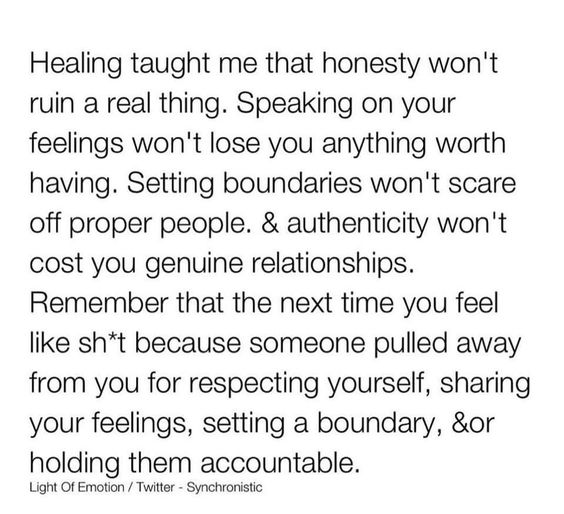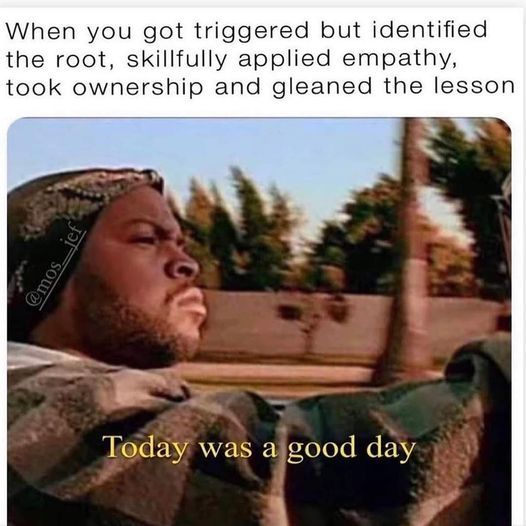“Traumatized people are afraid of conflict. They fear losing control and ending up on the losing side once again. Conflict is central to theater—inner conflicts, interpersonal conflicts, family conflicts, social conflicts, and their consequences. Trauma is about trying to forget, hiding how scared, enraged, or helpless you are. Theater is about finding ways of telling the truth and conveying deep truths to your audience. This requires pushing through blockages to discover your own truth, exploring and examining your own internal experience so that it can emerge in your voice and body on stage.”
Bessel van der Kolk, The Body Keeps The Score (Page 337)
“Unlike his experience with the numerous therapists who had talked with him about how bad he felt, theater gave him a chance to deeply and physically experience what it was like to be someone other than the learning-disabled, oversensitive boy that he had gradually become. Being a valued contributor to a group gave him a visceral experience of power and competence. I believe that this new embodied version of himself set him on the road to becoming the creative, loving adult he is today.”
Bessel van der Kolk, The Body Keeps The Score (Page 333)
“If you are not aware of what your body needs, you can’t take care of it. If you don’t feel hunger, you can’t nourish yourself. If you mistake anxiety for hunger, you may eat too much. And if you can’t feel when you’re satiated, you’ll keep eating. This is why cultivating sensory awareness is such a critical aspect of trauma recovery. Most traditional therapies downplay or ignore the moment-to-moment shifts in our inner sensory world. But these shifts carry the essence of the organism’s responses: the emotional states that are imprinted in the body’s chemical profile, in the viscera, in the contraction of the striated muscles of the face, throat, trunk, and limbs. Traumatized people need to learn that they can tolerate their sensations, befriend their inner experiences, and cultivate new action patterns.”
Bessel van der Kolk, The Body Keeps The Score (Page 275) | ★ Featured on this book list.
“It is an enormous challenge to find safe places to express the pain of trauma, which is why survivor groups like Alcoholics Anonymous, Adult Children of Alcoholics, Narcotics Anonymous, and other support groups can be so critical. Finding a responsive community in which to tell your truth makes recovery possible. That is also why survivors need professional therapists who are trained to listen to the agonizing details of their lives.”
Bessel van der Kolk, The Body Keeps The Score (Page 246) | ★ Featured on this book list.
“Writing experiments from around the world, with grade school students, nursing home residents, medical students, maximum-security prisoners, arthritis sufferers, new mothers, and rape victims, consistently show that writing about upsetting events improves physical and mental health.”
Bessel van der Kolk, The Body Keeps The Score (Page 243) | ★ Featured on this book list.
“Finding words where words were absent before and, as a result, being able to share your deepest pain and deepest feelings with another human being… This is one of the most profound experiences we can have, and such resonance, in which hitherto unspoken words can be discovered, uttered, and received, is fundamental to healing the isolation of trauma—especially if other people in our lives have ignored or silenced us. Communicating fully is the opposite of being traumatized.”
Bessel van der Kolk, The Body Keeps The Score (Page 237) | ★ Featured on this book list.
“As long as you keep secrets and suppress information, you are fundamentally at war with yourself. Hiding your core feelings takes an enormous amount of energy, it saps your motivation to pursue worthwhile goals, and it leaves you feeling bored and shut down. Meanwhile, stress hormones keep flooding your body, leading to headaches, muscle aches, problems with your bowels or sexual functions—and irrational behaviors that may embarrass you and hurt the people around you. Only after you identify the source of these responses can you start using your feelings as signals of problems that require your urgent attention.”
Bessel van der Kolk, The Body Keeps The Score (Page 235) | ★ Featured on this book list.
“If you’ve been hurt, you need to acknowledge and name what happened to you. I know that from personal experience: As long as I had no place where I could let myself know what it was like when my father locked me in the cellar of our house for various three-year-old offenses, I was chronically preoccupied with being exiled and abandoned. Only when I could talk about how that little boy felt, only when I could forgive him for having been as scared and submissive as he was, did I start to enjoy the pleasure of my own company. Feeling listened to and understood changes our physiology; being able to articulate a complex feeling, and having our feeling recognized, lights up our limbic brain and creates an ‘aha moment.’ In contrast, being met by silence and incomprehension kills the spirit. Or, as John Bowlby so memorably put it: ‘What can not be spoken to the [m]other cannot be told to the self.'”
Bessel van der Kolk, The Body Keeps The Score (Page 234) | ★ Featured on this book list.
“Activists in the early campaign for AIDS awareness created a powerful slogan: ‘Silence = Death.’ Silence about trauma also leads to death—the death of the soul. Silence reinforces the godforsaken isolation of trauma. Being able to say aloud to another human being, ‘I was raped’ or ‘I was battered by my husband’ or ‘My parents called it discipline, but it was abuse’ or ‘I’m not making it since I got back from Iraq,’ is a sign that healing can begin.”
Bessel van der Kolk, The Body Keeps The Score (Page 234) | ★ Featured on this book list.
“Drugs cannot ‘cure’ trauma; they can only dampen the expressions of a disturbed physiology. And they do not teach the lasting lessons of self-regulation. They can help to control feelings and behavior, but always at a price—because they work by blocking the chemical systems that regulate engagement, motivation, pain, and pleasure.”
Bessel van der Kolk, The Body Keeps The Score (Page 226) | ★ Featured on this book list.
“Patients who have been brutalized by their caregivers as children often do not feel safe with anyone. I often ask my patients if they can think of any person they felt safe with while they were growing up. Many of them hold tight to the memory of that one teacher, neighbor, shopkeeper, coach, or minister who showed that he or she cared, and that memory is often the seed of learning to reengage. We are a hopeful species. Working with trauma is as much about remembering how we survived as it is about what is broken.”
Bessel van der Kolk, The Body Keeps The Score (Page 215) | ★ Featured on this book list.
“After an acute trauma, like an assault, accident, or natural disaster, survivors require the presence of familiar people, faces, and voices; physical contact; food; shelter and a safe place; and time to sleep. It is critical to communicate with loved ones close and far and to reunite as soon as possible with family and friends in a place that feels safe. Our attachment bonds are our greatest protection against threat.”
Bessel van der Kolk, The Body Keeps The Score (Page 212) | ★ Featured on this book list.
“Study after study shows that having a good support network constitutes the single most powerful protection against becoming traumatized. Safety and terror are incompatible. When we are terrified, nothing calms us down like the reassuring voice or the firm embrace of someone we trust. Frightened adults respond to the same comforts as terrified children: gentle holding and rocking and the assurance that somebody bigger and stronger is taking care of things, so you can safely go to sleep. In order to recover, mind, body, and brain need to be convinced that it is safe to let go. That happens only when you feel safe at a visceral level and allow yourself to connect that sense of safety with memories of past helplessness.”
Bessel van der Kolk, The Body Keeps The Score (Page 212) | ★ Featured on this book list.
“Learning to observe and tolerate your physical reactions is a prerequisite for safely revisiting the past. If you cannot tolerate what you are feeling right now, opening up the past will only compound the misery and retraumatize you further.”
Bessel van der Kolk, The Body Keeps The Score (Page 211)
“Most of our conscious brain is dedicated to focusing on the outside world: getting along with others and making plans for the future. However, that does not help us manage ourselves. Neuroscience research shows that the only way we can change the way we feel is by becoming aware of our inner experience and learning to befriend what is going on inside ourselves.”
Bessel van der Kolk, The Body Keeps The Score (Page 208)
“In order to regain control over your self, you need to revisit the trauma: Sooner or later you need to confront what has happened to you, but only after you feel safe and will not be retraumatized by it. The first order of business is to find ways to cope with feeling overwhelmed by the sensations and emotions associated with the past.”
Bessel van der Kolk, The Body Keeps The Score (Page 206) | ★ Featured on this book list.
“Trauma robs you of the feeling that you are in charge of yourself. The challenge of recovery is to reestablish ownership of your body and your mind—of your self. This means feeling free to know what you know and to feel what you feel without becoming overwhelmed, enraged, ashamed, or collapsed. For most people this involves (1) finding a way to become calm and focused, (2) learning to maintain that calm in response to images, thoughts, sounds, or physical sensations that remind you of the past, (3) finding a way to be fully alive in the present and engaged with the people around you, (4) not having to keep secrets from yourself, including secrets about the ways that you have managed to survive.”
Bessel van der Kolk, The Body Keeps The Score (Page 205) | ★ Featured on this book list.

